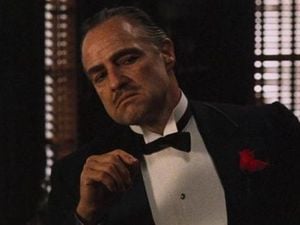Netflix’s new series "American Primeval" has ignited controversy by depicting the Church of Jesus Christ of Latter-day Saints (LDS) and its leader Brigham Young with what the church calls dangerously misleading narratives. The six-part drama, directed by Peter Berg and featuring stars like Taylor Kitsch and Betty Gilpin, premiered on January 9.
The show's premise is set against the backdrop of 1857 America, amid the tensions of the Utah War and the infamous Mountain Meadows Massacre. The series portrays cultural and religious conflicts as brutal, with moments described as ‘all the worst parts of life’ by USA TODAY's TV critic Kelly Lawler.
"American Primeval" opens with the stark statement: "This is America...1857," immersing viewers in a world marked by violence, fear, and survival. The tale allegedly intertwines fictional storytelling with the painful realities of history, offering interpretations of events around the Mountain Meadows Massacre—a horrific incident where over 120 members of the Baker-Fancher wagon train were killed by LDS militiamen, with assistance from Native American allies.
Following the episode release, the LDS Church issued strong opposition to the portrayal of Brigham Young, stating he is mischaracterized as "a villainous, violent fanatic." Their official statement stressed the inaccurate depiction of Young, who has historically been viewed as a revered prophet and pioneer leader within the church. It warned of the potential harm such representations can cause, particularly how they reinforce negative stereotypes related to the faith.
“A recently released streaming series presents a fictionalized interpretation of events in mid-19th century Utah. While historical fiction can be illuminating, this drama is dangerously misleading," the church condemnation reads. It continues by asserting, "The problem with such deceptive, graphic and sensationalized storytelling is it obscures reality and hinders genuine understandings, fostering hate and violence, especially when peacemakers are critically needed today."
Directly referencing the Mountain Meadows Massacre, the church acknowledged the event's horrific nature but emphasized their commitment to sharing the full truth of what transpired. The LDS Church has long condemned the massacre and has worked to promote healing and reconciliation, making their stance clear against the series’ presentations.
Director Peter Berg, addressing the backlash, acknowledged the artistic liberties taken within the narrative. He remarked, “It’s not a literal depiction of the Meadows Massacre because those massacres took place over three days and ours takes place very quickly,” highlighting the creative choices made for the drama’s pacing and storytelling arc.
Berg added, “I’ve heard some of the pushback, but I haven’t heard anyone from the Mormon side deny the Meadows Massacre happened and Mormons did it.” He pointed out historical instances of abducted individuals, aiming to contextualize the series without claiming documentary-level accuracy. His comments reflect the tension between creative storytelling and historical authenticity—an issue sports networks have faced amid increasing public scrutiny over representations of sensitive subjects.
The series delves deep enough to try painting the complexity of the characters and conflicts, hoping to draw audiences onto morally ambiguous ground, pondering how power, faith, and fear intermingle. Yet, this ambition has proven contentious. Responses to the show reflect broader discussions about representation, narrative integrity, and the ethical obligations productions hold when portraying real-life individuals and events.
Critics like the LDS Church argue historical fiction, especially one intertwined with their beliefs and public perceptions, bears extra weight. The church's statement extends its appeal to the audience to recognize and separate dramatic interpretation from factual storytelling, emphasizing the need for responsible engagement with such media.
Despite critiques, "American Primeval" delivers what has been described as a savage portrayal of the American West, unfurling the narrative of families torn apart and the harshness of survival against societal breakdowns. Netflix has allowed the entire series to be streamed since its debut, generating conversations not just about entertainment but also about the narratives surrounding the church's past.
While some view the dramatization as valuable historical commentary, others stand firmly opposed, reminding audiences of the potential dangers of sensationalized storytelling. This struggle continues as communities and creators navigate the treacherous waters of artistic representation against the backdrop of real conflicts and cultural beliefs, with heightened sensitivity to the ramifications of those portrayals.



